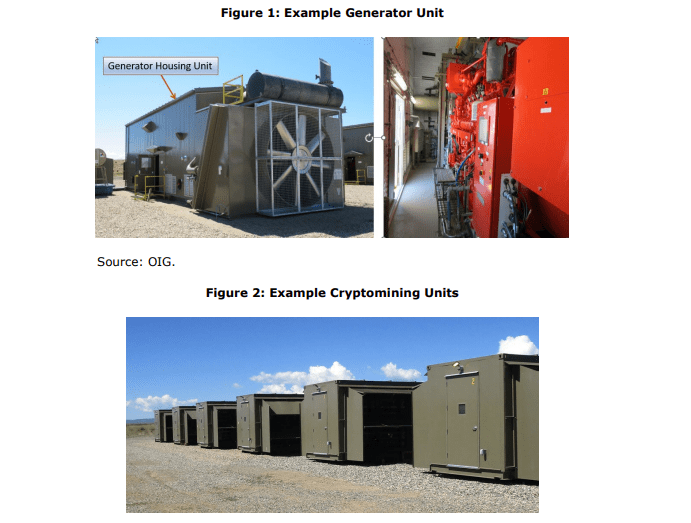Cryptocurrency miners operating on public lands haven’t been paying their dues, according to a new report from federal watchdog group, the Office of the Inspector General for Department of the Interior (DOI OIG). The regulatory agency document, published this week and dated Monday, highlights a lack of clear policy surrounding crypto mining that’s left the U.S. government and its land losing out.
Fossil fuel companies and other resource extraction industries mine, in part, on federal lands through a system of permits and leases. As part of the arrangement, the government receives a kickback through royalty payments on all that extracted oil and gas (formerly 12.5% for onshore operations’ revenue, but recently raised to 18.75% by the Biden Administration).
But apparently, some of these oil and gas corps operating on public lands have set up crypto side hustles, that go unaccounted for in the royalty payouts. The DOI OIG identified at least one gas company siphoning off fuel sourced from a federal lease to power servers racing to mine blockchain bucks, after the agency was notified by the Colorado Oil and Gas Conservation Commission. “Put another way, these activities generate revenues for private companies using federally owned gas, at times without the leaseholder paying mineral royalties,” the report reads. “As a result, these activities may result in the loss of Federal or Tribal mineral revenues.”
On top of federal fuel being used without federal permission (and without the agreed-upon pay), there’s also potential issues of safety for the land and the people involved in running these crypto mining units, the DOI OIG states.

“Cryptomining itself requires physical infrastructure and can have a significant effect on the land on which it occurs,” the report notes. “The cryptomining units include large generators, cooling equipment, and a significant number of computer arrays contained in mobile facilities. These facilities operate constantly and require vast amounts of energy.” And the DOI OIG is certainly not wrong. Manufacturing value on the blockchain is energy intensive and dirty work. In fact, crypto mining uses even more energy than the process of actually mining stuff out of the ground, according to one 2018 study.
Plus, the watchdog group’s report notes that the server systems it documented in Colorado are mobile units — making it easy for fossil fuel companies to relocate their crypto operations and evade disclosure to the Bureau of Land Management or other agencies. Without proper declaration and approval, these mining units could be inadvertently placed in sensitive areas, cause infrastructure damage, and might not be adequately insured against accidents, the DOI OIG wrote.
“Overall, we identified the use of Federal gas to support cryptomining operations as an emerging issue with potential effects on Federal and Tribal lands and resources,” the report says. To solve the problem, the Inspector General’s office recommended that the Interior Department issue an official guidance about how to handle crypto operations moving forward, “addressing potential land use concerns, safety risks, environmental impacts, and royalty collection requirements.”
In response, the DOI told its OIG that it would “take steps to to include cryptomining threat detection in future inspector and investigator training,” along with other measures including notifying its agencies and holding a meeting. But for the OIG, those actions aren’t quite enough. “We consider this recommendation resolved but not implemented,” the watchdog wrote. “We will continue to monitor [DOI’s] actions to determine whether it has communicated clear and consistent guidance.”
